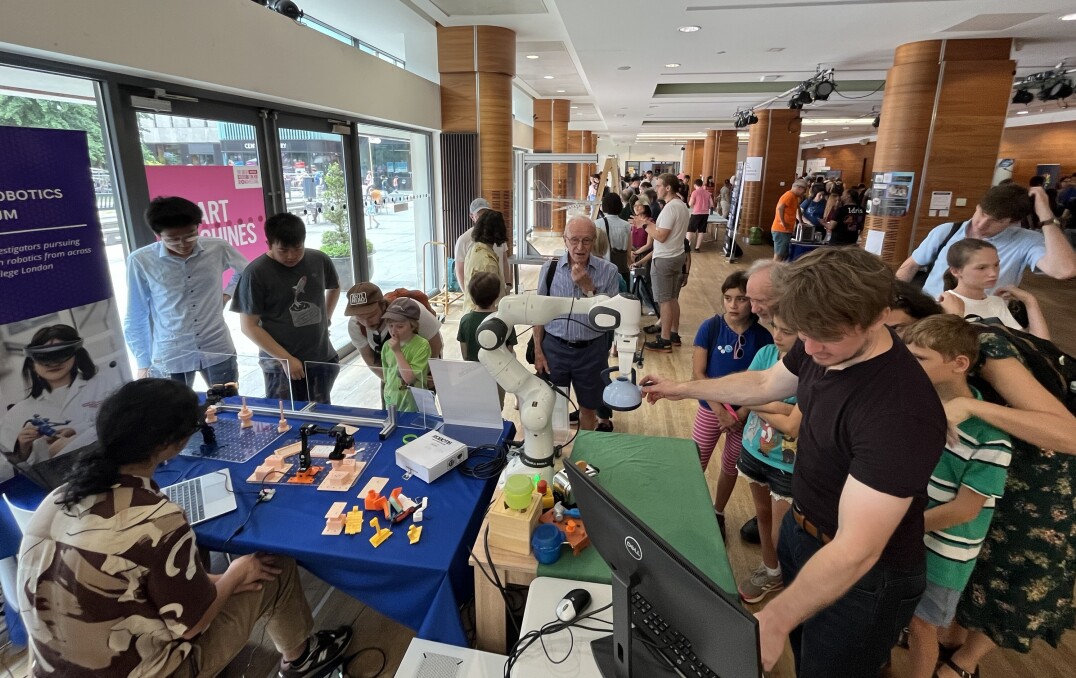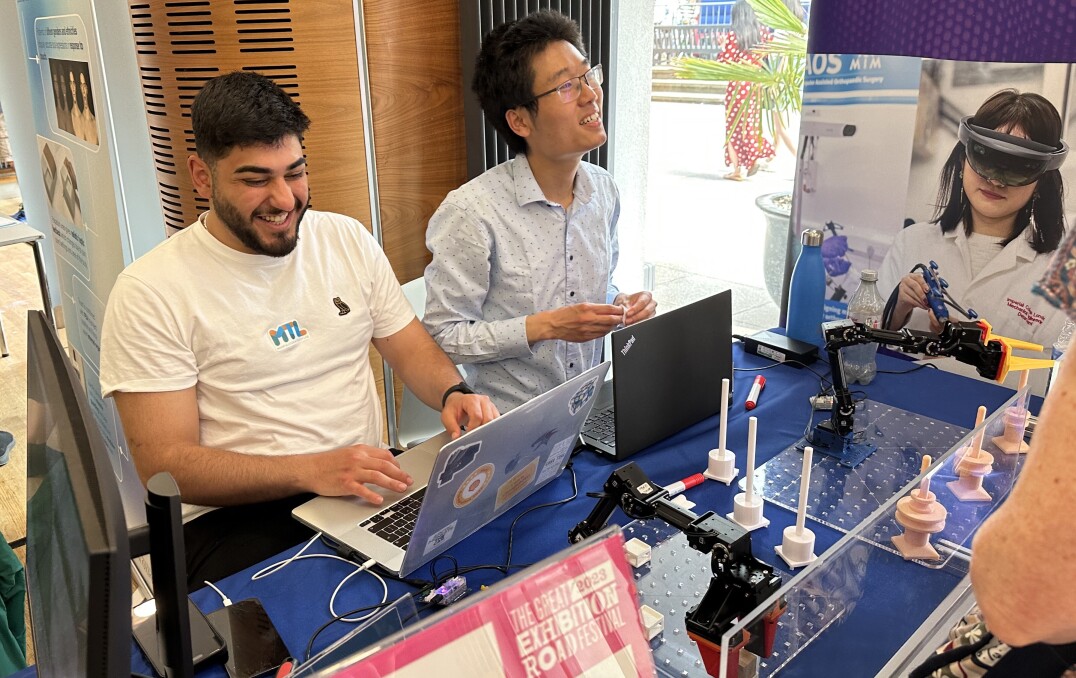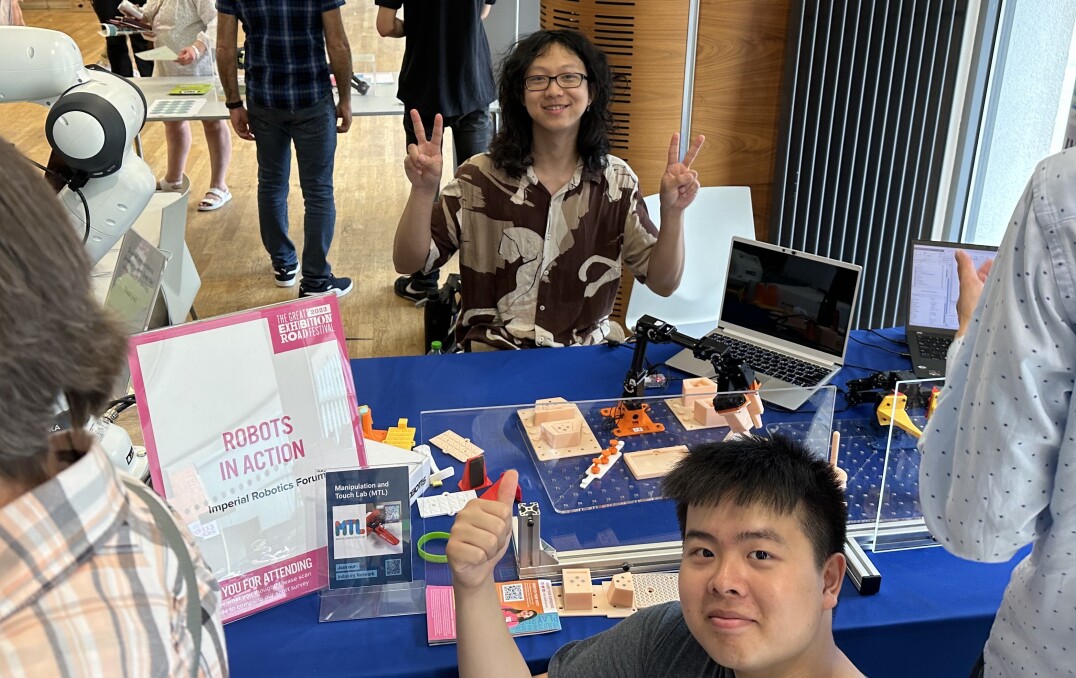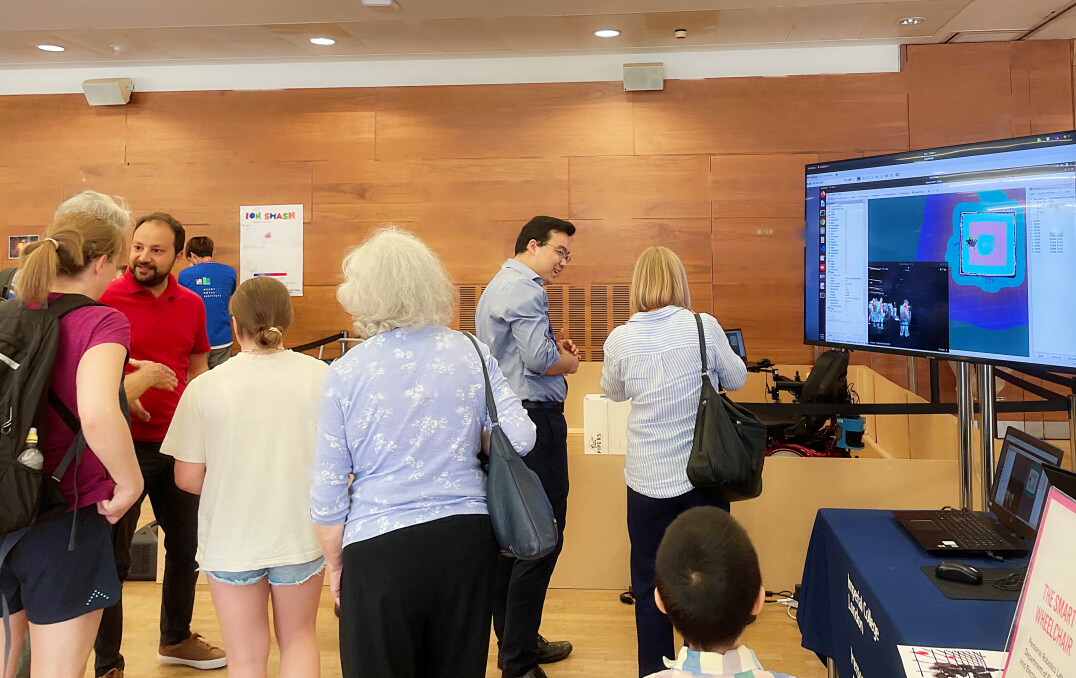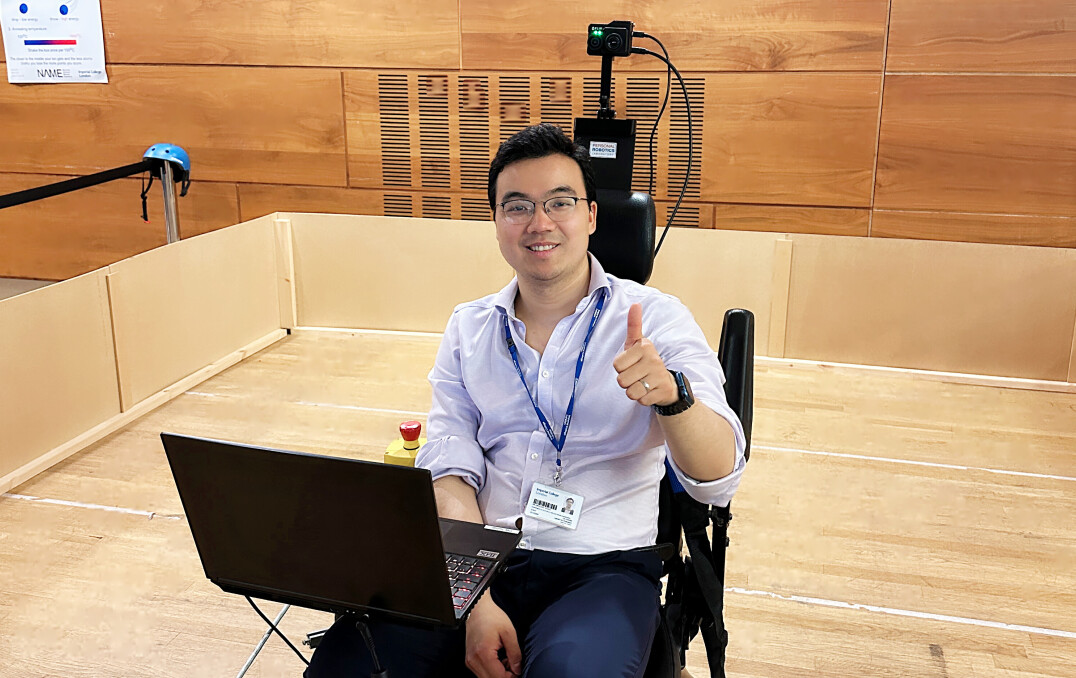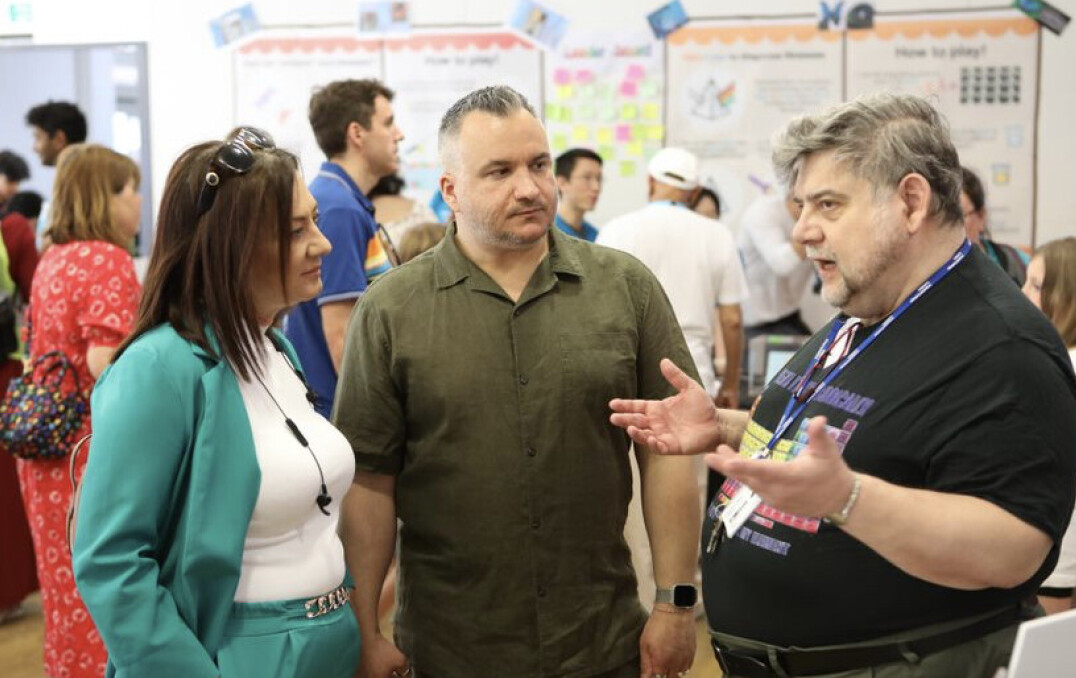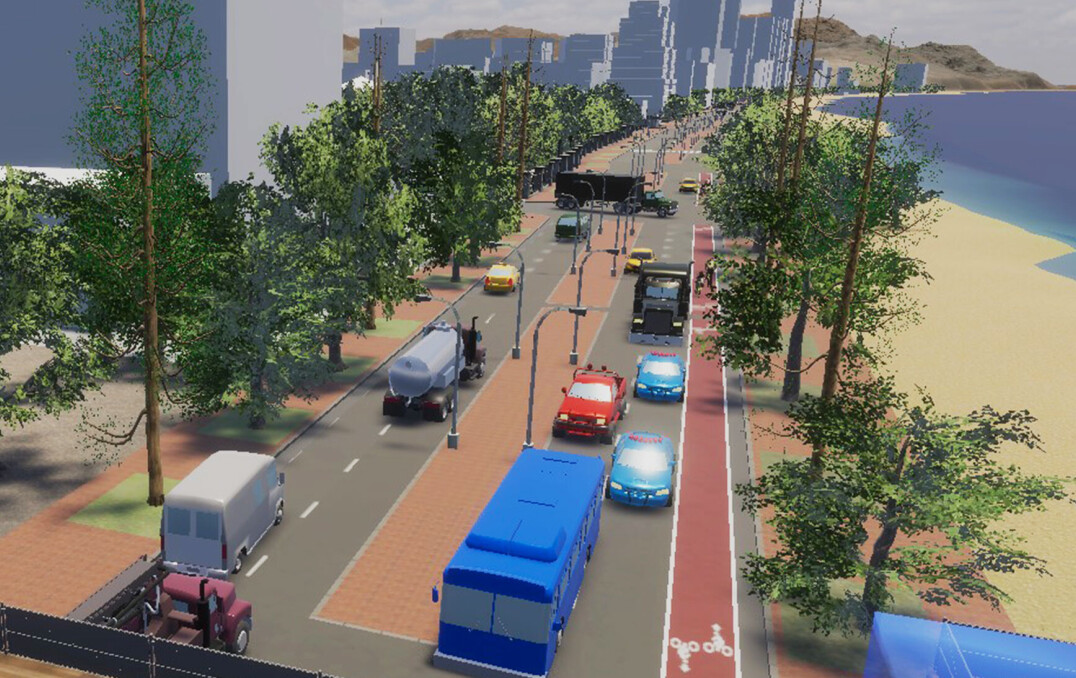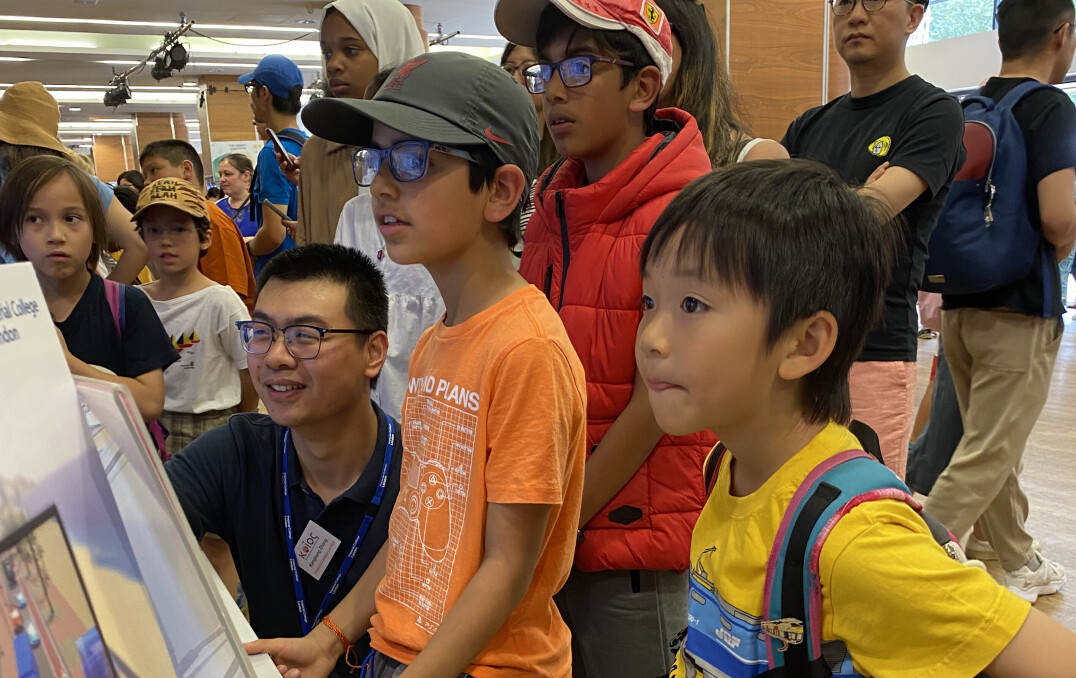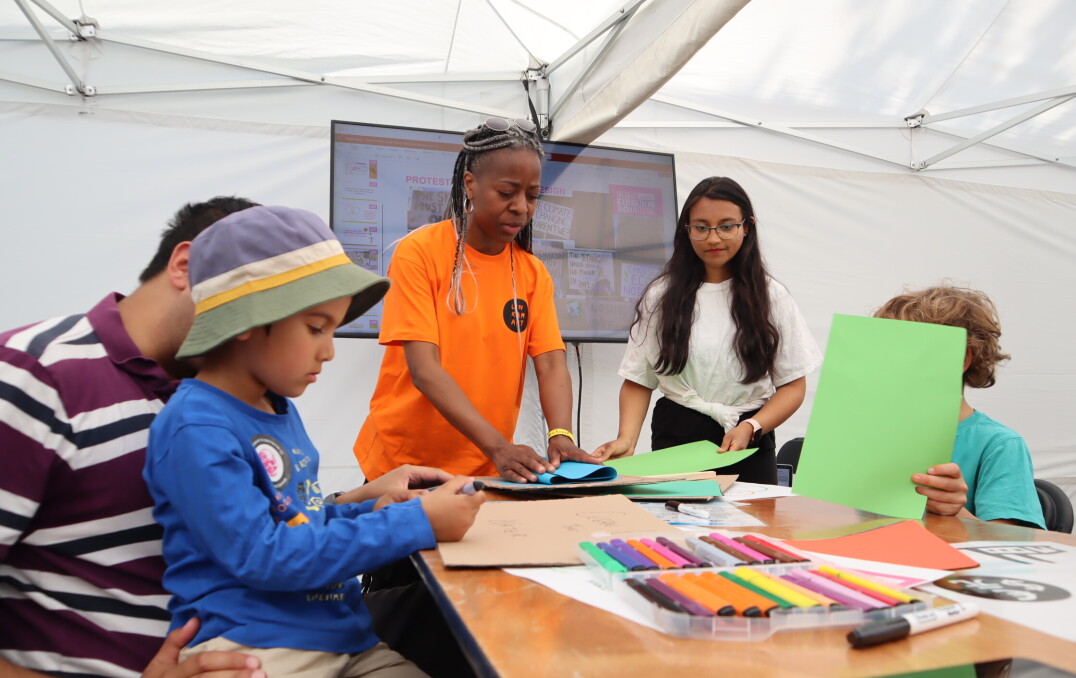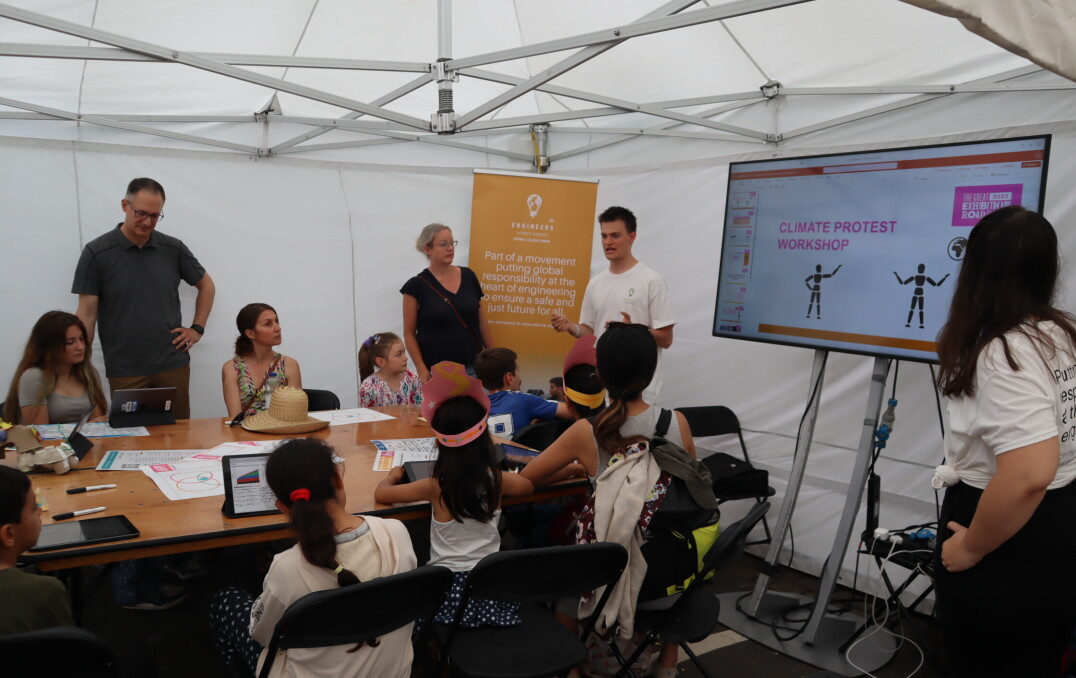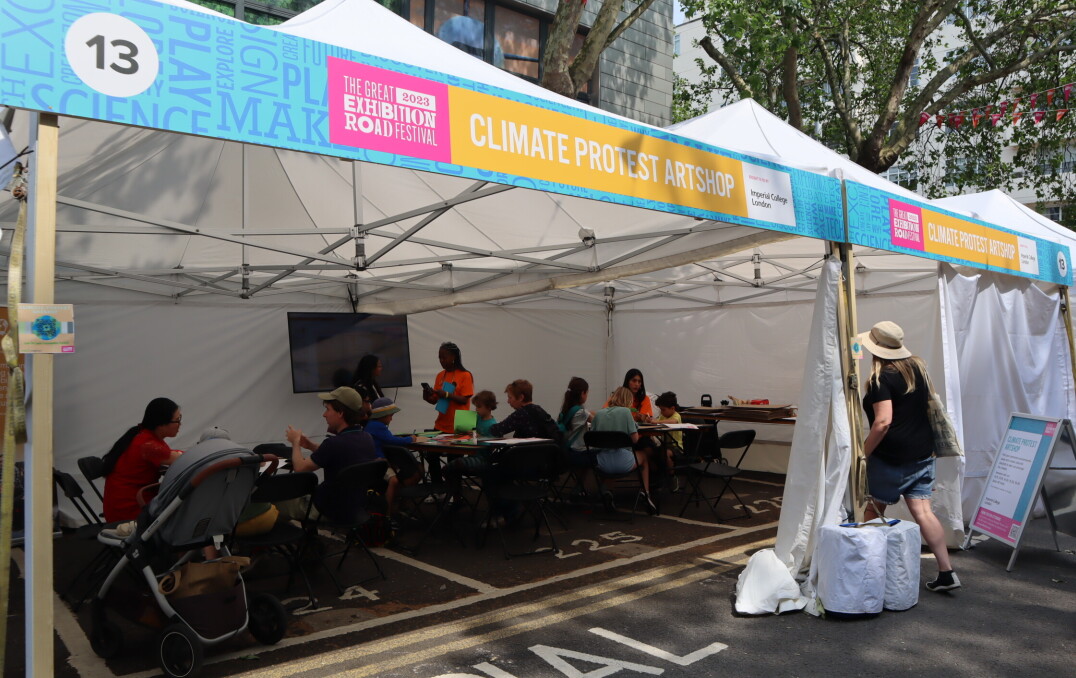Electrical and Electronic Engineers at the 2023 Great Exhibition Road Festival
by Jane Horrell
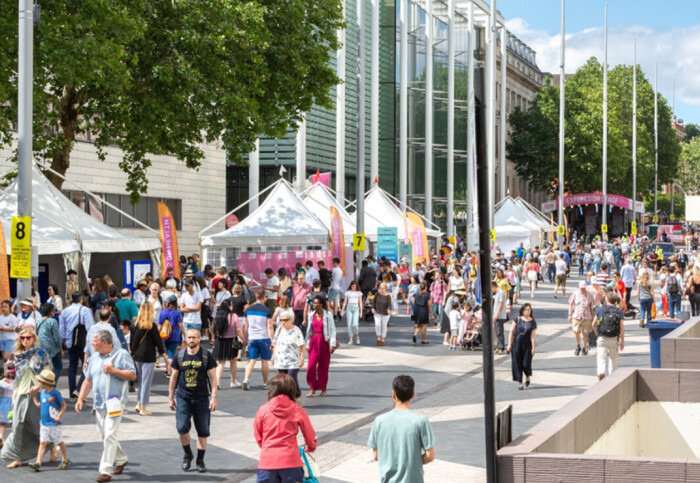
The annual festival of arts, science and culture took place last weekend, with students and staff from our department showcasing their latest work.
Electrical and Electronic Engineering research and student projects featured among the hundreds of activities, experiments, interactive displays and workshops aiming to inspire Festival visitors of all ages.
As well as meeting future generations of scientists and engineers, we also welcomed back alumni, as the EEE Class of 1970 returned for a reunion visit and tour of the Department.
A huge thank you to staff and student volunteers for sharing your passion for engineering, and to all our visitors who helped make this such a brilliant event.
Check out some of our photographs from a wonderful weekend:
Gripping robots
Smart wheelchair
Also in the Smart Machine Zone in the Queen's Tower Rooms, visitors had the opportunity to check out the navigation capabilities of our Personal Robotics Lab's autonomous robotic wheelchair, including the latest research developing thermal sensing to help users detect pedestrians.
Researcher Dr Xingchen Zhang reported that as well as really enjoying trying out the wheelchair, festival-goers asked some very interesting questions about whether the technology could avoid dogs and cats that might suddenly appear in its path, and how a destination could be specified through speech recognition or Google Maps. "Some visitors also had fun attempting to outsmart the thermal pose recognition algorithm."
Save the city
At the KIOS Virtual City’s power substation, visitors were challenged to take part in a disaster simulation and save the power, transportation and water networks and keep citizens safe.
The KIOS project, which is working to make our infrastructure networks smarter and more secure in the face of danger, is a collaboration between the University of Cyprus and Imperial College focused on the Monitoring, Control, Security and Management of Critical Infrastructures, including large-scale, complex systems such as power and energy systems, water systems, transportation systems, telecommunication networks and emergency response systems. The Imperial team is led by Professor Thomas Parisini from EEE.
Dr Radu Rautiu, Head of Research Project Management, Enterprise, said that their many visitors to the Smart City demonstrator included lots of alumni, and they were also very pleased to welcome (centre) Marios Theocharous — Cultural Attaché, and (left) Niki Savva — Finance Counsellor from the Cyprus High Commission in the UK.
Creating protest
Third year EEE student Milan Paczai is Chair of Imperial's Engineers Without Borders student society.
The group organised the "Climate Protest Artshop" on Exhibition Road, which engaged over 250 people in 40 minute workshops over the two days. Milan said that attendees were really interested in the En-ROADS Online Simulator tool developed by Climate Interactive where participants could take on the roles of high-level decision-makers and test out different interventions to reach the 1.5C temperature rise agreed on in the Paris Agreement.
In the second part of the workshop, a self-reflection tool provided visitors with a unique opportunity to understand their own interests, skills and opportunities, which they then used to design their own climate protest placards.
"It gave (visitors) an opportunity to bridge the gap between science and art, and enabled them to express their thoughts and emotions. It was amazing to see how children as young as 3 were able to meaningfully engage with the online simulator, while the older generations were immersed into the self-reflection and placard drawing even more than we hoped."
Sustainable power
The Energy Future's Lab's Wattown is always a popular activity at the Festival. Wattown is an interactive model of a town of the near-future which shows how renewable energy sources can be integrated with energy storage options to power a town. Participants can see how their actions of blowing wind turbines or illuminating solar panels can power the town.
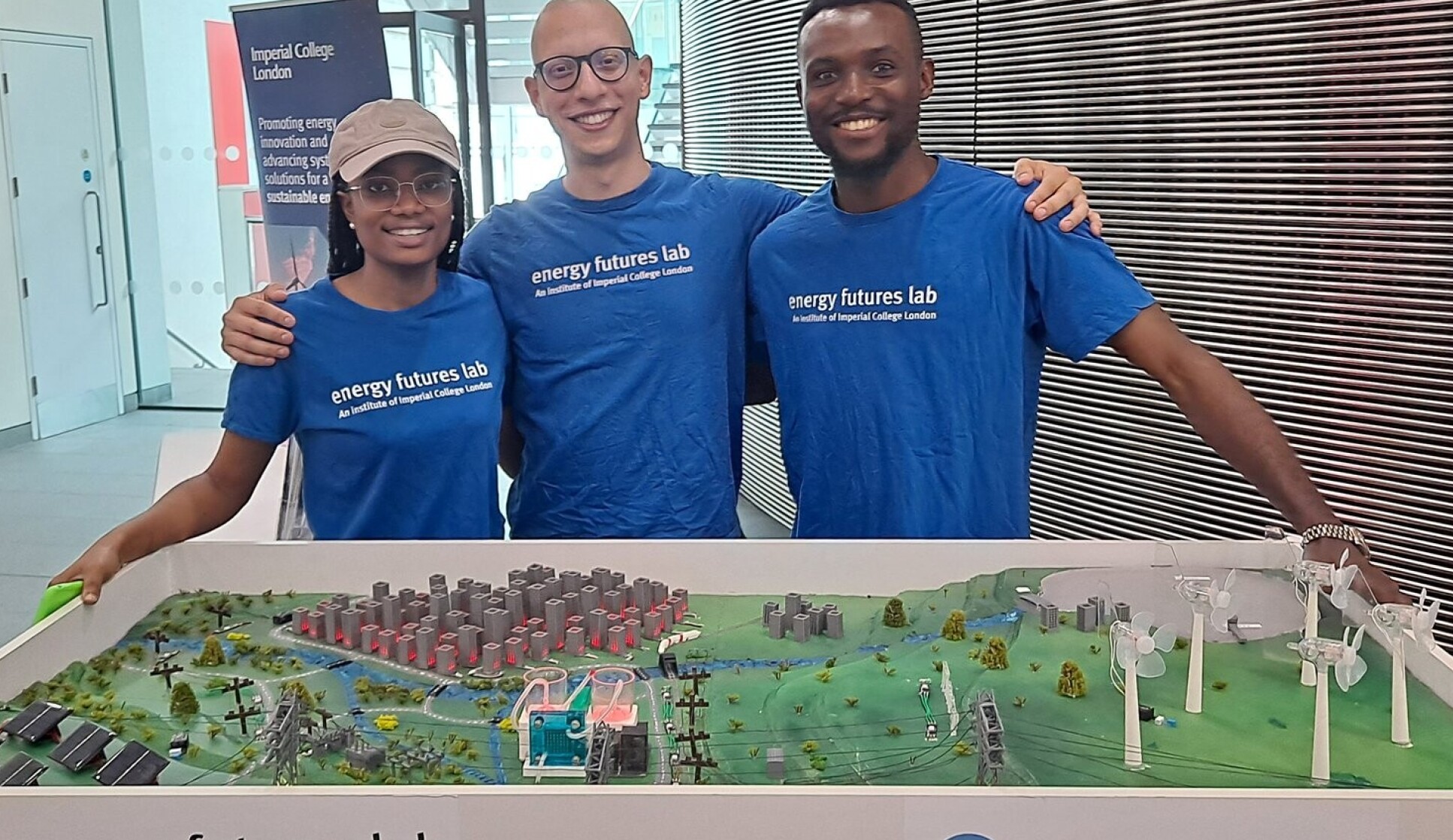
Conor McNally from the Energy Futures Lab found a brief moment during the weekend to take a photograph of some of the volunteers, all students on the MSc course in Sustainable Energy Futures (l-r Naa Okailey Ayitey, Fares Arafat, Miracle Mbaekwe).
Conor said their visitors were excited to learn about the progress being made in the development of clean energy technologies and keen to learn how they could make a difference at home.
"Many asked about the sustainability of renewable technologies and the raw materials needed to make them, and were delighted to learn about work ongoing at Imperial to develop generation and storage technologies that are less reliant on critical minerals."
Welcoming alumni
On the opening day of the Festival we were delighted to host members of the EEE graduating class of 1970, as part of a "busy and engaging day."
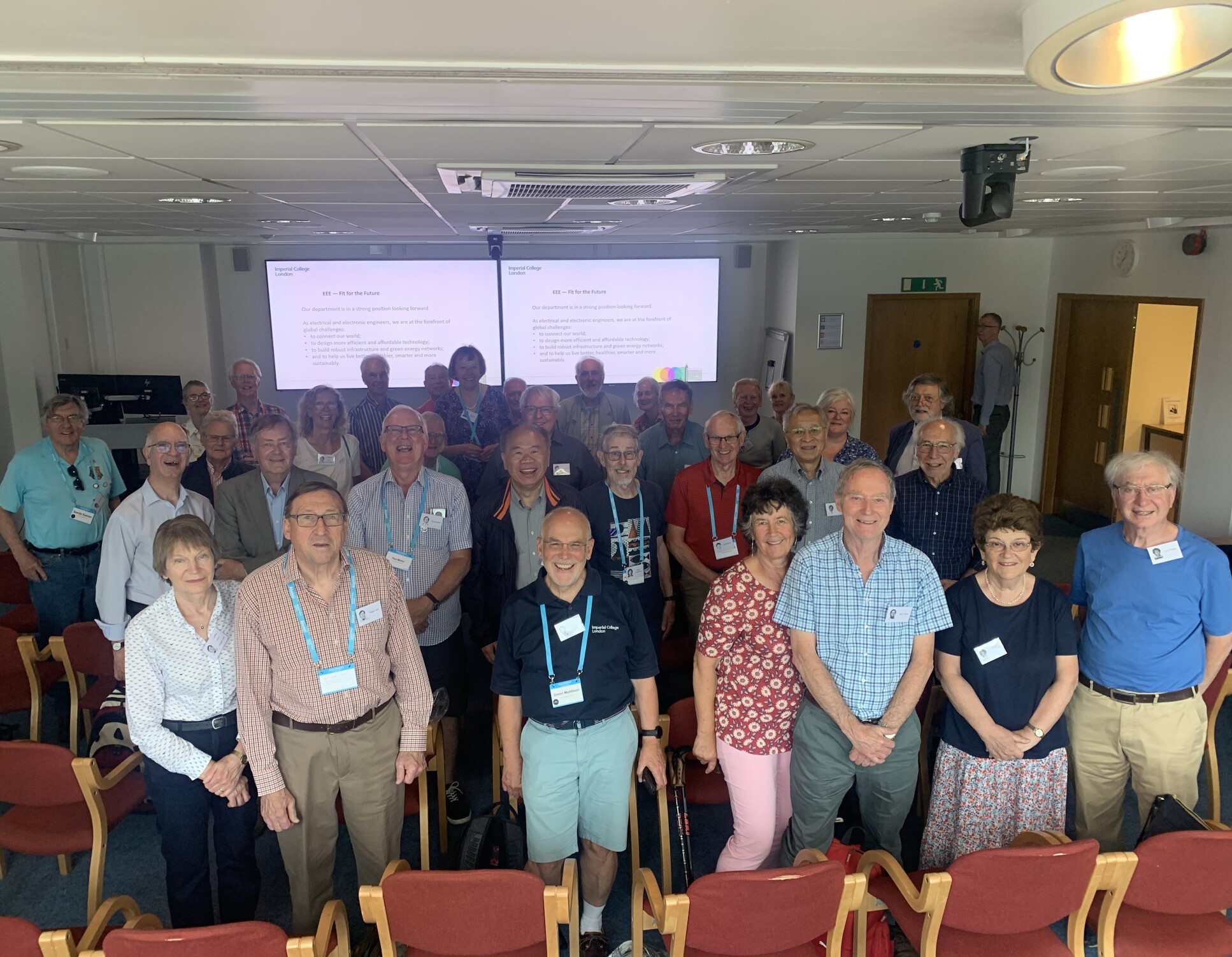
The group toured current lab facilities, and Head of Department Professor Eric Yeatman shared a presentation highlighting our latest research, teaching and learning, and the department's future strategy and challenges, which gave the former classmates an opportunity to see how much has changed in 50 years — and how much has stayed the same!
Article text (excluding photos or graphics) © Imperial College London.
Photos and graphics subject to third party copyright used with permission or © Imperial College London.
Reporter
Jane Horrell
Department of Electrical and Electronic Engineering
